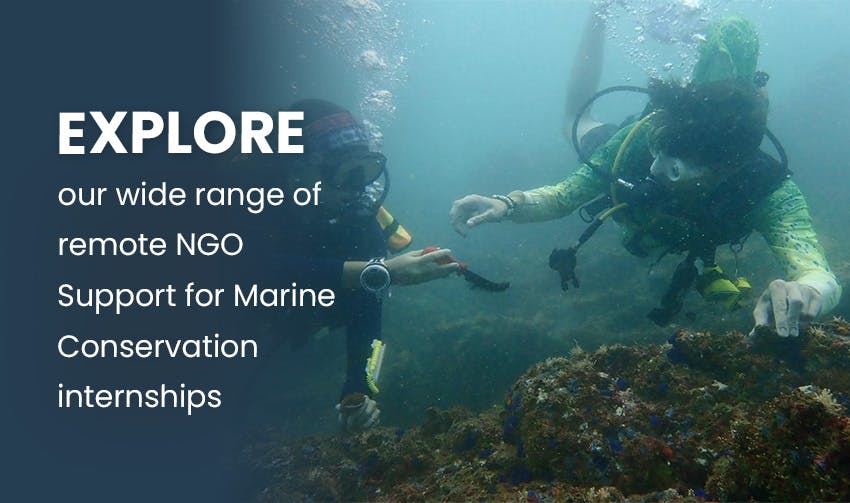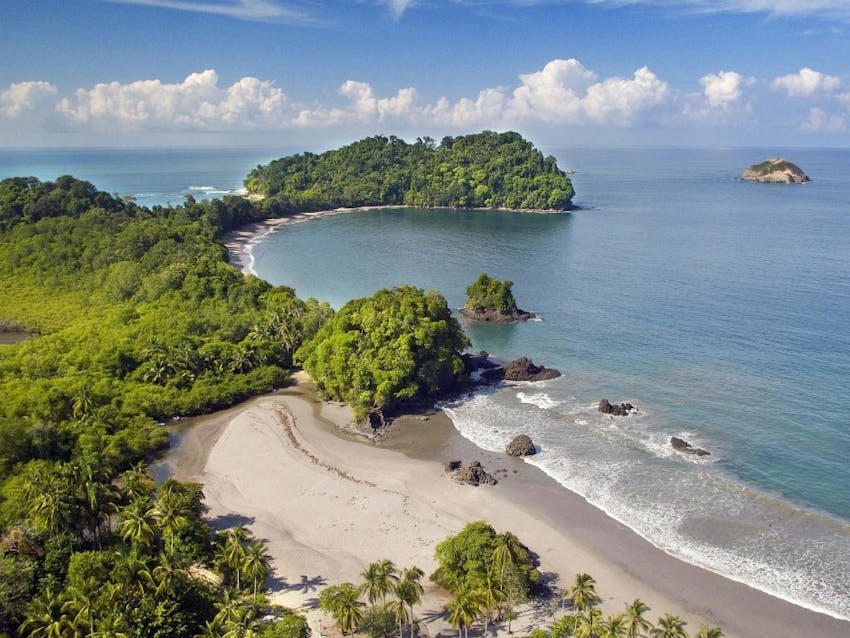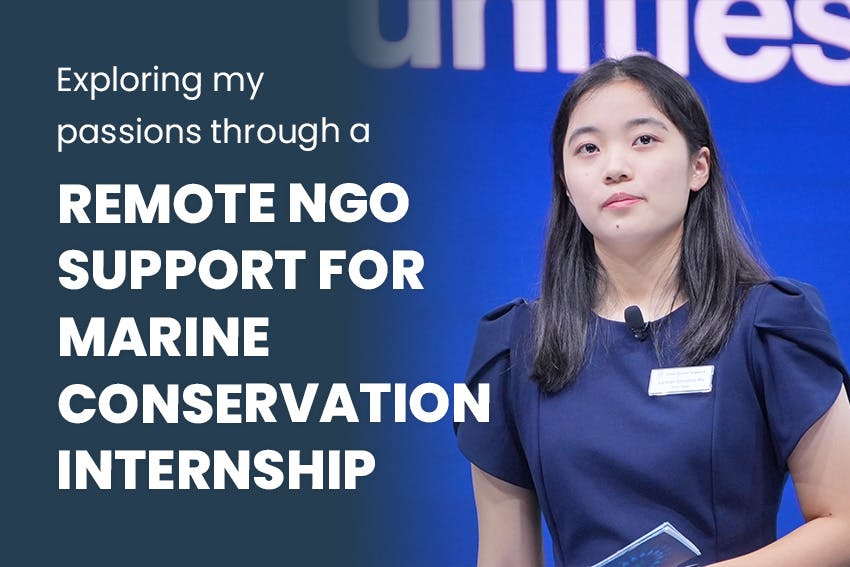
Discover how geography case studies come to life outside the classroom, with a practical NGO Support for Marine Conservation internship. Flexible online internships give you freedom to gain experience around your own schedule. Learn more about how the remote internships are conducted, what to expect, what you can learn, and how a remote NGO Support for Marine Conservation internship can inspire your own passions to pursue a career in sustainability and environmental studies.
Want to learn how you can do this internship in-person? Check out Sustainable Business & Tourism or Environmental Education internships in Costa Rica and find out more about what to expect here.
Thank you for sharing with us! What can you tell us about your internship?
My NGO Support for Marine Conservation internship placement was hosted by a Marine Conservation NGO in Costa Rica. Contrary to my expectation that I would be given a heavy workload in the first place, plus regular check-ins / supervisions, I found my internship to be actually quite flexible.
As my Internship Coordinator told me in the meeting, the best part about remote internships is that we are both able to work at our own times and paces, bridging the differences between time and space. I really loved the experience of sitting in front of my own computer and working in my room undisturbed and according to my favor.
The pre-internship meeting with my supervisor was memorable, as we picked up our phones and chatted, and I felt really moved by the passion and determination of the founders, to set up their own NGO to protect the marine habitat through coral conservation, education, and promoting ecotourism.
My supervisor spoke to me with so much enthusiasm, and all of a sudden, I saw my Geography case studies coming to life - there are so many conservationists who are taking action, eager to protect our environment! The meeting inspired me to continue my passion for studying Environmental Studies, Geography, and Ecology to hopefully give back to nature.
What did your internship role specifically involve?
I loved the various tasks I was assigned as an intern: they required a lot of reading, data collection and synthesis, but also creative input.
After communicating that I wished to work on the measurement of coral polyps, I received a Google Drive folder containing pictures of corals and a PDF with very clear instructions of which software to download and what to do with the pictures.
Measuring one picture of coral polyps after another, I couldn’t help imagining how much effort had gone into installing more than 47 coral nurseries and “planting” (tying/gluing) the skeletons for corals to grow on top of onto individual plates and repeatedly maintaining and taking measurements of their growth rates. The hard work and determination being put into this NGO work, and how I could assist to support it, deeply moved me.
My supervisor also asked me to help develop a sustainable rubric regarding the environmental friendliness of business practices, which she will be able to give to local businesses to self-assess. I synthesized the Green Star Evaluation (a commonly used criteria for dive shops), the surveys devised by the MCCR staff, as well as my own experience in the field of Environmental and Social Governance (ESG) and sustainability. With the criteria I put together, I felt that achieving sustainability was quite challenging as it involves so many aspects of the business to go green, from detergents to power sources.
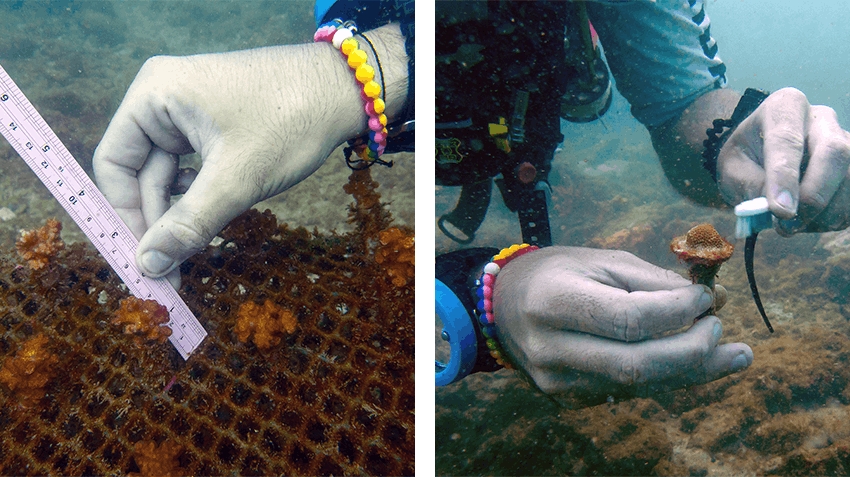
What were some unexpected aspects of your internship experience?
My internship made me realize what is behind the seemingly attractive tourist hotspot: there are passionate people and organizations putting a lot of effort into protecting the local environment against the damage of tourism and other economic activities.
As a person who has never been to Central America, I had limited knowledge of the people and culture there. From the fragments of how people talk about it, I used to think of Costa Rica as a relaxed holiday destination and perhaps not particularly productive. However, my supervisors showed me the level of professionalism and enthusiasm that goes into their conservation work and the coordination of internship tasks.
I felt that my supervisors really cared about who I am and were willing to listen to my story and opinions. In the pre-internship meeting, we discussed “what is driving me” to achieve everything I had on the resume, which even made me ponder for a second. Not only did I feel cared and supported by this curiosity into my past experiences, but I was also inspired to think about what it is that I do really care about. They were very experienced with any questions I had and, overall, I felt really supported.
Working with my remote supervisors also opened my eyes to a great lifestyle of achieving a work-life balance. Growing up in China, I was accustomed to the kind of work-dominated life from what I observed from my parents, but my supervisors in Costa Rica demonstrated the balance of both having a job that they love, while also taking time to relax and get together with their families.
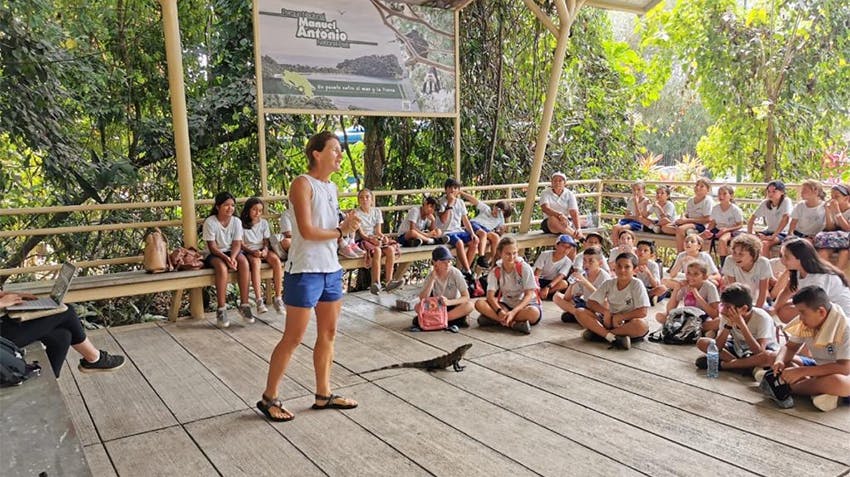
What were the main forms of communication for your remote internship?
In the pre-program meeting, I asked about the preferred mode of communication, and the response was, “WhatsApp - it is the easiest!” Assured, I continued all forms of communication via WhatsApp and found it really effective. I found that I prefer written forms of communication (e.g. emails and text messages) because by writing everything down, I have more time to think through everything I want to say and put them in the most concise way. I would also have more control over the content of what I am trying to convey and not be distracted by the sway of a conversation. I also enjoyed the fact that I could log onto my WhatsApp on my laptop and type in paragraphs, as well as paste links of Google Docs and Drive into the message easily. I feel that I was playing to my strengths in communication.
Since this was my first proper internship experience, before the internship began and in the first week or two into the internship, I stressed about how I should communicate with my internship managers. However, as I wrote more and more messages, I found that communication was not as intimidating as it seemed. I would say that I was on the same page with my supervisors, when it comes to forms of communication - just focus and deliver what has to be delivered, and the communication is in the right shape.
Overall, I learned to take my own initiative when encountering problems that I am unsure of. Also, not to be afraid to reach out for help, to ask questions, or update the supervisors on what I have been doing. Active communication is always the key!
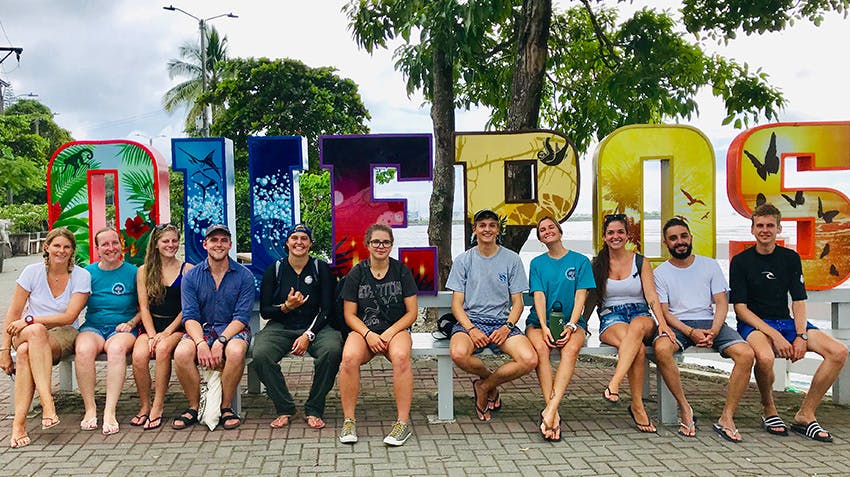
What were some of your highlights from this experience?
I think the framework established by Intern Abroad HQ for this remote internship really helped me gain insight into an NGO and my supervisors really supported and motivated me. I feel that this experience would really help me excel in future career experiences.
My favorite moment was chatting with my supervisor about why the NGO was founded and exchanging conversations about our motivations. That talk melted away the intimidation I had and it made me feel that my voice was valued. I also saw how passionate the founders of the NGO are in working towards their vision of sustainability.
Looking at what this NGO has done - coral nursery, education outreach, developing a rubric for corporate governance - its efforts really inspired me and made me want to dive deeper into these fields in the future! I would not hesitate to say that the internship confirmed my passion in majors related to sustainability and environmental studies in university.
I really appreciated the passion, dedication, but also the professionalism put into the field of sustainability and environmental conservation!
Ready to plan your own internship abroad?
Our step-by-step guide on how it works provides you with more information on how to get started. The process is user friendly - just submit your application to get started. It doesn’t cost anything to apply and won’t take more than 5 minutes. However, your formal expression of interest provides the foundation for us to help you take the next steps.
